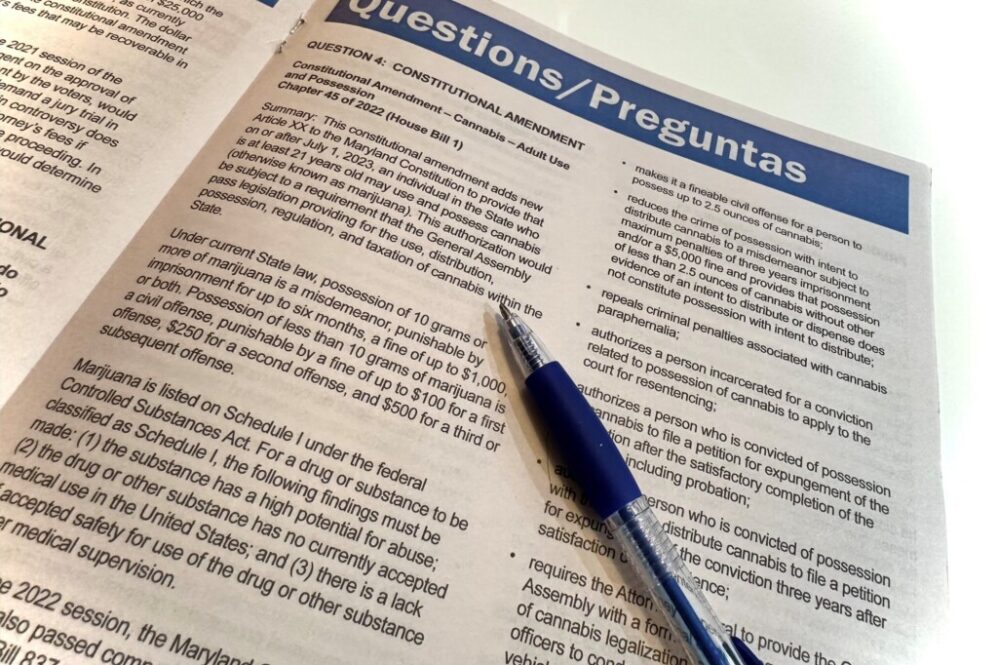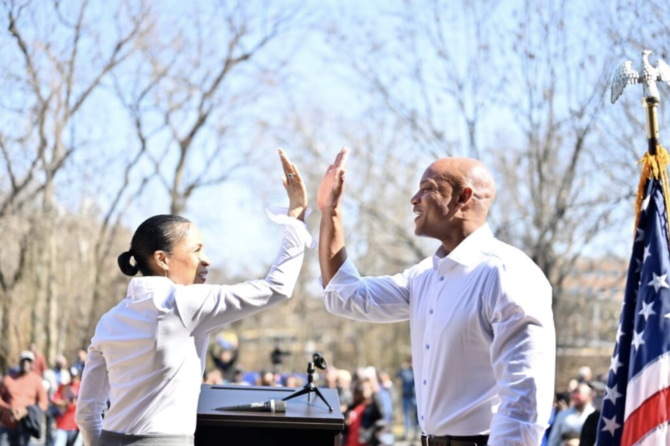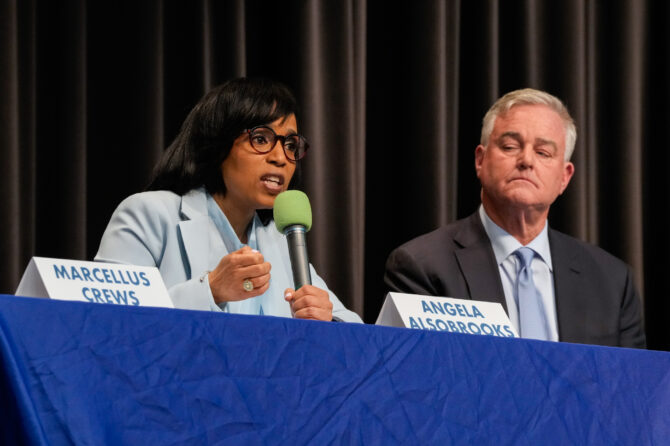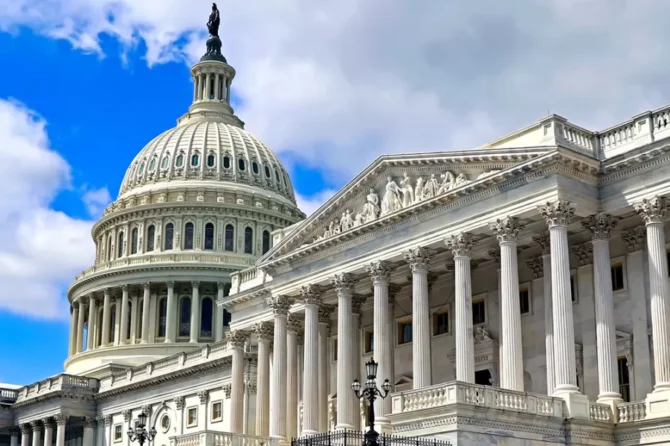MARYLAND MATTERS: Although the Maryland gubernatorial election remains the major focus in the Nov. 8 general election, voters also have a say on five constitutional amendments on the ballot. Some could have a profound effect on Marylanders’ everyday lives; others are more obscure.
Voters have a choice to legalize cannabis for recreational use, raise the monetary threshold for a right to civil jury trials, refine residency requirements for state legislators and rename two state courts.
A final question asks voters whether to abolish the orphans’ court in Howard County; the issue will receive statewide scrutiny because orphans’ courts throughout the state are established through the Maryland Constitution.
For each question on the ballot, voters will fill in an oval indicating they are “for the constitutional amendment” or “against the constitutional amendment.” The voters’ decisions are final and cannot be vetoed by the governor.
Here’s a brief summary of each question voters will see on their ballots:
Question 1
Some Marylanders confused by the names of state courts may no longer need to worry soon.
If approved, the state’s highest court — now called the Court of Appeals — would be renamed the Supreme Court of Maryland. In addition, each of its seven judges would be referred to as justices.
Maryland’s highest court has been named the Court of Appeals since it was created by the state constitution in 1776.
Under the amendment, the 15-judge Court of Special Appeals would be renamed the Appellate Court of Maryland. The Court of Special Appeals was established as an intermediate appellate court in 1966.
The legislature approved a measure last year to place the name changes on the November ballot.
Maryland and New York are the only two states that do not label their highest courts as the “Supreme Court.”
Question 2
Voters can also decide whether to refine residency requirements for Maryland legislators.
Current state law requires a person who serves as a senator or delegate to be a Maryland resident for at least one year before the general election and to have lived at least six months in the district that they seek to represent before the general election — if that district was established at least six months prior to the general election.
The measure on the ballot, if approved by voters, would take the residency requirement a step further, requiring candidates to “maintain a primary place of abode” in their prospective district. In other words, a candidate could not run for office in a district where they maintain a part-time or temporary residence.
Lawmakers unanimously approved putting the amendment to referendum last year. Sen. Charles Sydnor III (D-Baltimore County), who sponsored the measure, testified that if lawmakers spend most of their time living outside of their district, it would “prevent a true understanding of the issues” that their constituents face.
Defining a legislator’s abode has been controversial in the past, including when then-Senate Majority Leader Clarence W. Blount’s residency was challenged in court in 1998.
If approved, the proposed amendment would take effect Jan. 1, 2024.
Question 3
Voters will also decide whether to increase the monetary floor for the right to request a jury trial in a civil proceeding. Under the proposed constitutional amendment, defendants would have the right to demand a jury trial if the amount in dispute is more than $25,000. The monetary threshold was last increased to the current $15,000 in 2010, when 66% of voters approved a constitutional amendment.
Under current law, a judge and not a jury would determine a verdict if the amount in dispute is less than $15,000.
Supporters of the amendment say increasing the threshold would allow more cases to be resolved expeditiously in District Court; insurance companies and other defendants often request Circuit Court jury trials — which require more time and judiciary resources — when plaintiffs seek more than $15,000 in damages. Opponents note that Maryland has one of the highest thresholds for seeking civil jury trials in the country.
The General Assembly approved putting this constitutional amendment to referendum last year.
Question 4
The most high-profile issue on the ballot will ask voters a simple question: “Do you favor the legalization of the use of cannabis by an individual who is at least 21 years of age?”
The question includes an effective date of July 1, 2023, if voters back legalization.
The legislature approved the measure during this year’s 90-day session with the intent to “provide for the use, distribution, possession, regulation and taxation of cannabis within the state.”
Legalization is tied to cannabis reform legislation that includes provisions that would:
- Define a “personal use amount” of cannabis as no more than 1.5 ounces, or equivalent to no more than two cannabis plants.
- Allow someone convicted for possession with the intent to distribute cannabis to petition to have a criminal record expunged three years “after the person satisfies the sentence or sentences.”
- Establish a Cannabis Public Health Advisory Council to collect data, study and provide recommendations to “advance public health related to cannabis use and legalization.”
- Create a Community Reinvestment and Repair Fund to fund organizations that serve communities affected by previous disproportionate enforcement of marijuana prohibition laws.
- Incorporate civil penalties for offenses such as smoking in a public place, with the first offense incurring a $250 fine and a $500 fine for subsequent offenses.
During this year’s General Assembly session, lawmakers approved the policy measures, which take effect only if the referendum is passed, on largely partisan lines.
If approved, Maryland would join nearly two dozen states and the District of Columbia in allowing cannabis for recreational use.
Question 5
This statewide question focuses on whether judges in Howard County’s Circuit Court should take over the role of the orphans’ court, or probate court.
If approved, Howard would join Harford and Montgomery counties as the only jurisdictions in the state that require circuit court judges to handle claims that would be directed to orphans’ courts in other counties.
Howard County voters currently elect three judges to serve on the orphan’s court, which supervises the management of estates for people who died with or without a will.
Howard and 18 other counties currently elect three judges to the orphans’ court. Those judges aren’t required to be lawyers but are trained in specific areas of the law to handle cases.
Those elected in Prince George’s and Baltimore counties and the city of Baltimore must be lawyers and in good standing with the Maryland Bar.
This article was written by Maryland Matters, read more stories like this here.
Photos: Maryland voters will decide five constitutional questions this election. Photo by Danielle E. Gaines.











